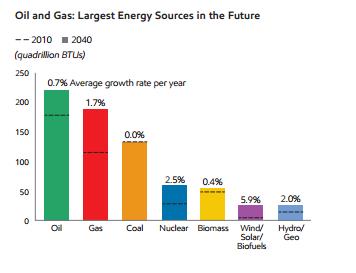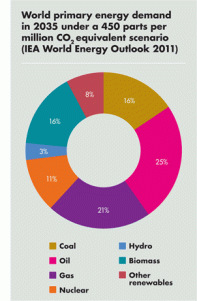if (typeof(fg_widgets)===”undefined”) fg_widgets = new Array();fg_widgets.push(“fgid_b6e48def29e5aa35aeea2f700”);
http://www.feedgrabbr.com/widget/fgwidget.js
All posts by Matt
United Nations Climate Discussions: The Current Proposal is Weak but Necessary to Gather Momentum
In my white paper, I examine the ability of the United Nations to influence national policies regarding climate change. After examining the Kyoto and Montreal Protocol, I search more in-depth into the issues that have hindered the current proposal from reaching the success that world leaders and climate scientists agree should happen. I point to 4 key considerations that need to be met for a successful agreement; political, environmental, economic, and enforcement. While the proposal is not likely to change much in the upcoming year, world leaders should do their best to combat their individual emissions, setting the elimination of climate change as a priority for the 21st century. Continue reading United Nations Climate Discussions: The Current Proposal is Weak but Necessary to Gather Momentum
How will businesses influence COP21?
It is essential that a successful agreement happens in the United Nations’ Conference of the Parties (COP21) in 2015. A successful agreement would not only require participation from all or nearly all industrialized countries, but it would also require that ambitious goals are made. IPIECA is an association that was created in response to the United Nations Environmental program and advocates for policies for 38 oil and gas companies, including all the major international companies. As policy-makers progress to make ambitious goals in the upcoming year, IPIECA may help or hinder the success of policy changes. As the demands for energy increase, it has to be realized that coal, oil, and gas have to make significant changes and sacrifices if the agreement is to be a success. I will need to do more research into IPIECA and the World Coal Association to determine what position they will take in COP21 in 2015.
IPIECA seems to be heavily involved in many climate change groups such as the United Nations Framework Convention on Climate Change, the Intergovernmental Panel on Climate Change, and is invested in the CO2 Capture Project. Given the involvement of IPIECA in many programs and panels, and the realistic goals for global energy use in 2035 (shown below), it seems that IPIECA may actually be a source for alternative solutions, and an association to integrate solutions with. Perhaps, IPIECA does not actually share all the same views as the companies that have memberships and instead has more ambitious goals than oil and gas companies would like; however, their involvement with the United Nations makes their position vital in my discussion.
Energy companies, such as ExxonMobil, do not have a strong stance for sustainability, and are one of the most powerful institutions for making changes. ExxonMobil’s energy report shows a general lack of initiative to transfer out of coal and oil. Instead they adopt a “follow the money” policy, even though they are the economic leader of the industry. Furthermore, they have the ability to lobby government to prevent the institutionalized transfer to more sustainable energy sources.
ExxonMobil’s CEO, Rex. Tillerson stated at a speech in Houston that “There is no question that energy has been one of the foundations of U.S. economic strength for most of our nation’s history. In recent years the growth in domestic oil and gas production has been an important economic driver that extends far beyond our sector – delivering benefits to a wide range of Americans, businesses, and every level of government.’ Here, it does not seem as if the CEO intends to change directions on energy sources. However, in ExxonMobil’s Climate and Energy Report it says that “We are taking prudent steps on many fronts to address the risks posed by a changing climate, and we also continue to engage the public and policy makers in many ways regarding the issue.” This contradictory speaking reveals a startling truth about ExxonMobil’s true plan for the future. The climate and energy report is most likely to be read by someone who cares about the environment, and this paper is framed to show “dedication” to cleaner energy technologies. ExxonMobil also drastically underestimates the rising levels of CO2 emissions in these reports, and contributes these reductions to “improvements in energy efficiency” that are both finite, and not actually happening. (ExxonMobil Energy Report)
ExxonMobil claims it has a strict policy, but ExxonMobil is likely biased in their policies towards climate change, as well as the future of the energy industry. Shareholders of ExxonMobil would benefit from perpetuating the notion that lobbying is difficult, that climate change is distant and does not have the potential to be impactful, and that the future of the energy industry is set in stone.
My goal is to use my businesses sources to find the views of big energy businesses, and how they present a danger to the climate future. I hope to determine what influence IPIECA and WCA have on UN decisions, and use this to aid in my predictions/discussions. I hope to find other businesses that also show a strong potential to act as competition to these coal, oil and gas industries, and show potential for growth with sustainable technologies, attacking the idea that eliminating coal and oil from our “diet” would not hurt our economic health.
Citations:
“Climate Change.” The Oil and Gas Industry and Rio 20. 1 Jan. 2014. Web. 11 Dec. 2014. <http://rio20.ipieca.org/fact-sheets/climate-change>.
Is the United States Warming Up to Global Climate Control Policies?
The United States is responsible for the relative global failure of the Kyoto Protocol. Global warming has since become an even more urgent global issue. From the UN Emissions GAP Report, “Should the global community not immediately embark on wide ranging actions to narrow the greenhouse gas emissions gap, the chance of remaining on the least-cost path to keeping global temperature rise below 2°C this century will swiftly diminish and open the door to a host of challenges.”
UNEP GAP Report: http://www.unep.org/emissionsgapreport2013/
At this moment in time the United States is in an ideal position to be a global leader and make efforts to reduce climate impact by utilizing its position it has as an educational hub to create clean technologies for global use. The US has already stated in the Submission of Elements document that it believes countries should take on “ambitious efforts.” The US also supports differences in emissions, but not a “bifurcated” approach. The US wants an easily negotiated, amended, and long lasting policy. Ideally, all countries will be willing to compromise, but it is also likely that there will be many disagreements. Since the United States’ economy and CO2 effect is so large, it is necessary that the United States and other large emitters reduce emissions regardless of other countries’ decisions.
Although the United States has plans that may suggest a new drive to become a world leader at addressing climate change there are many politicians in Congress who still do not believe that climate change is a cause worth supporting. This view is held consistently by the Republican Party and may suggest ulterior interests in the oil and gas industry. Therefore the document should be viewed among the wider political landscape including the percentage of Republicans in both the US House and Senate, as well as the effects that lobbying has on government decisions.
The United States should hold true to the promises made at the Framework Convention in order to keep on good terms internationally. The US representatives had said they wanted contributions to be more specific, and in a format. This would help clear communication and make countries’ contributions easily comparable. There were also demands for a quantitative report from all countries, except for developing nations. These schedules may include a mix on quantitative, and policies. The US proposed that we focus on REDD+, which would also account for the effect of trees and wildfires on CO2 emissions. The US also encouraged other countries to decide upon a marketing structure that will allow more effective implementation of the given goals and policies. This convention may show an accurate portrayal of the representatives of the United States, but perhaps not the entire United States Congress as a whole. It’s often the case that only the active environmental leaders would attend from the United States.
http://unfccc.int/resource/docs/convkp/conveng.pdf
By studying documents like these that showcase the previous UN conventions and conferences of the parties (COP) as well as the United States public material on the environment, I hope to gain a better understanding of the United States position in a global context. I hope to also find the # of Senators and Representatives that support the President’s current international policies. I hope to determine the relative likelyhood of the United States backing out of COP21, and if it is likely, use this paper to challenge the parties that may have the most influence at changing the outcome.
Ethics at the End of the World
We live in a culture where most commercial, industrial, and residential activities have an impact on the environment around us. At the moment you are reading this post, your computer is using electricity most likely produced through coal, or gas-powered processes. Making choices individually that keep the environment in mind has become impossible in the fast-paced society that we live in. In order to collectively fix the social complications that arise when addressing climate change, we must decide collectively to lower our consumption and combustion of resources that have a negative impact on society’s immediate and long-term sustainability. It is not only necessary for governments to implement this collective change, but it must also be a collective change on the global level.
The United Nations has had meetings at least once a year since the first Conference of the Parties (COP) in 1995. In 1997, a document titled The Kyoto Protocol was created that outlined carbon dioxide reductions goals that each country would have to abide by in order to prevent serious climate change from occurring. Nearly two decades later, the United Nations has failed to create a globally ratified document that could be effective in completing these goals. Indeed “the UNEP’s Emissions Gap Report (2013) confirmed that no significant progress has been made in closing this substantial gap between that necessary for a less-than-2⁰C emissions pathway and developed countries’ pre-2020 mitigation commitments.”
However, plans are set into motion to create such a document in 2015 at COP21 in Paris, France. It is necessary that the appropriate preparations are made leading up to this meeting if any consensus is to be made regarding the policies that would then go into effect beginning in 2020. Thus far, there are mixed views as to whether COP21 will be successful in creating an agreement, despite the serious global need for the agreement to occur.
Denmark is one of a few country that has fully embraced clean technologies already, and therefore has very little economic stake in a global conversion to these same technologies. It’s prime minister, Helle Thorning, seems to be optimistic that other countries will be able to adopt the sustainable technology lifestyle. She believes that education and comprehensive policies are necessary parts of change.
Others like Ian McGregory, who has been an active participant at the COPs, worry that “the lack of progress is a failure to effectively address the overarching issue of each country’s fair share of the global effort required to keep global temperature rise well below the 2⁰C limit.” When addressing the success of COP21, he states that he does not believe all countries are willing to make the sacrifice “given the huge vested interests trying to undermine this agreement in many countries.” Jennifer Morgan, a journalist at the worldwide resources institute, stresses the importance that keeping global warming below 2 degrees C, “two small degrees means either survival or complete devastation for some countries.”
Often discussed is the necessity for leaders of important leading economies such as the United States, China, and Japan to reach an agreement at Paris in 2015. The “vested interests” of some of these economies in oil, gas, and coal could potentially hinder the success of COP21, but Jennifer Morgan points out Germany’s economy as an example of the potential for growth. “Germany, for example, invested in renewable energy to drive technology development. It’s seen significant benefits in terms of hundreds of thousands of new jobs, decreased emissions, and reduced energy consumption.”
These sources represent an array of viewpoints shared by leaders around the world and give good insight into the politicians and upcoming decisions that will make a difference for COP21. The next step will be to look into the identified businesses and government sources (United States, China, Chancellor Merkel, President Dilma, ExxonMobil, and other gas companies) to determine how the COP21 will likely play out. The synthesis of these sources will give a valuable and current viewpoint that would help a reader understand the necessary steps to be successful in Paris in 2015.
Sources:
// // // // //
Personal EEG Coach
This is an idea that I’m working on in one of my classes that I don’t currently have the resources to do as much as I want to do with, but I think could solve so many problems in our society.
Enjoy:
The United State’s Missed Opportunity for Global Climate Leadership
When the Kyoto Protocol reached United States Congress in 1997, the global focus was put onto the environment and the complex implications that industrialization had on the atmosphere. Scientists were beginning to understand the long-term effects of CO2 emissions and it was the responsibility of world leaders to treat these issues with the importance and urgency that they deserved. The United States was a main focus and its decision could have set a precedent for placing the environment and its many benefactors as a priority. However, politicians such as George Bush and those of the Senate cited economic issues and the non-participation of developing countries as the reasons why the US would not participate in the Kyoto Protocol. I have included in this paper why both of these methods of reasoningare not ethically based, and have contributed to creating global climate problems that will continue into the future. Continue reading The United State’s Missed Opportunity for Global Climate Leadership
Matthew the math whiz
My mother told me that she knew I would be a math whiz, so she thought that Matthew, the tax collector, would be a fitting apostle to name me after. My middle name, Peter, also stemmed from similar religious beginnings. Some other names that were considered for me include Caroline, Erin, Erica, Anna, or Daniel. All of which, in my opinion are pretty average. Maybe my parents thought I was going to be an average guy? My surname, Terry, is English or Irish (according to Google) but my father has Russian and Polish heritage…so.. What does this say about me? Well, not much. I have come to realize that my name and ethnicity is not something that defines me too much as a person. Continue reading Matthew the math whiz
Discovering Fire
Neighbors Natural Gas
As a Pennsylvania resident living above the Marcellus Shale, the swift invasion of natural gas companies through my hometown came without much community conversation. I feel as if the complexity of the issues went largely over our heads and under our feet, but I felt especially out of the loop. I don’t think I talked to anyone about it until I saw the first well built along the road I would take to school. I wonder how neighbors in a small community may have talked about these events as they unraveled.







